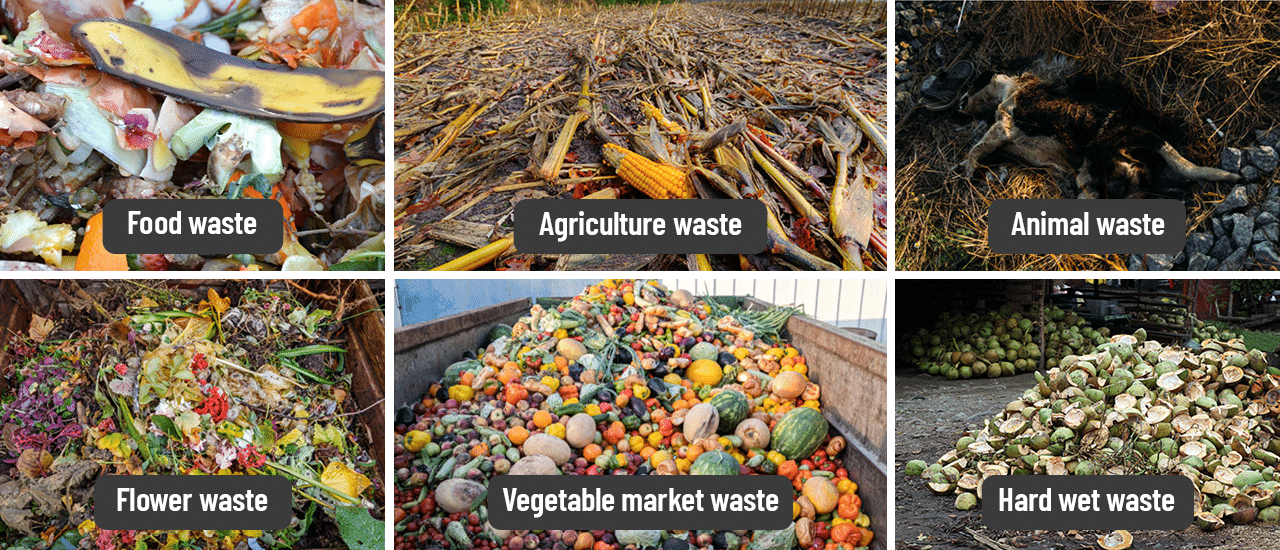
WHAT IS WET WASTE?
Waste that can decompose on its own and return to nature as basic organic compounds or elements is known as biodegradable/organic/wet waste.
WHAT ARE THE TYPES OF WET WASTE?
| Food waste | |
|---|---|
| Source of waste | Residential area , commercial areas, hotels and restaurants |
| Waste handling | a. At source management b. Collection by governing body |
| End of life options | a. Compost b. Energy generation in form of biogas and electricity |
| Flower waste | |
|---|---|
| Source of waste | Temples, nirmalya at the time of festivals |
| Waste handling | Collection by governing body |
| End of life options | a. Composting b. Essence sticks c. Other products |
| Vegetable market waste | |
|---|---|
| Source of waste | APMC/Mandai, local vendors |
| Waste handling | Collection by governing body |
| End of life options | a. Compost b. Energy generation in form of biogas and electricity |
| Agriculture waste | |
|---|---|
| Source of waste | Bagasse and animal waste |
| Waste handling | At source management |
| End of life options | a. Compost b. Energy generation in form of biogas and electricity |
| Hard wet waste | |
|---|---|
| Source of waste | Coconut shells |
| Waste handling | Collection by governing body |
| End of life options | a. Cocopeat b. Ropes, Coir |
| Animal waste | |
|---|---|
| Source of waste | Slaughter houses, fish markets, centralized and local butcher shops |
| Waste handling | Collection by governing body |
| End of life options | Processed food and other products for animal husbandry |
